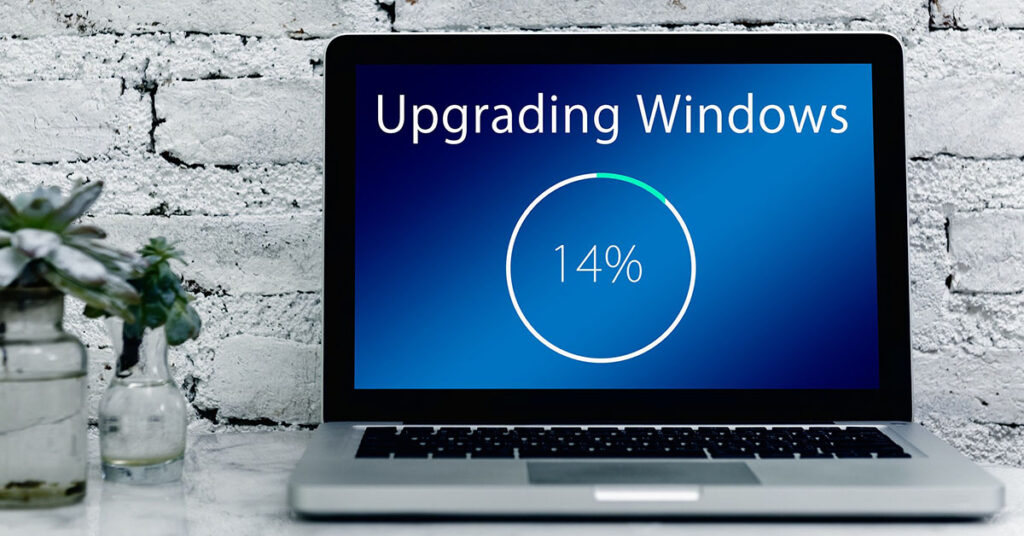A critical part of protecting your business is backing up your data. Some businesses never fully recover from data loss and it is something that can be easily avoided but also is often overlooked.
A critical storage failure or even a failed cloud provider is something that can happen to any business.
There are many types of backups, some that have a long retention period where you are able to restore files from any date in the retention period and others that can restore a whole server to a virtual instance to quickly recover from server failure. Some backups can even do both.
If all your data is stored on your server then this is your primary concern, however if you also store data on various laptops remotely you also need to ensure they are protected too.
Most newer PCs, laptops and some servers are now using SSD drives instead of the older mechanical drives. This is great because they are so much faster, but one downfall is that when they fail it is harder to retrieve data from, making backups that bit more important.
Backups are something that should be tailored to the business type and this is something that Apex IT can help with.
For more information on trying our cloud backup solution, visit our backup page.
Protecting Your Data and Ensuring Business Continuity
In today’s fast-paced digital world, data is the lifeblood of any business. That’s why backups are essential for ensuring that your data is protected and available in case of an emergency. Whether you’re dealing with hardware failures, natural disasters, or cyber attacks, backups are a critical component of any data protection and business continuity strategy.
What is a Backup?
A backup is a copy of your data that you can use to restore your data if it is lost or damaged. Backups can be stored on a separate device, in the cloud, or on tape, and can be used to restore individual files or entire systems.
Why are Backups Important?
Backups are essential for protecting your data and ensuring business continuity in the face of hardware failures, natural disasters, and other emergencies. Here are some of the reasons why backups are important:
Protect against data loss: Backups protect your data against data loss caused by hardware failures, cyber attacks, and other disasters.
Ensure business continuity: Backups ensure that your business can continue to operate even in the face of a disaster, such as a fire or flood.
Meet compliance requirements: In many industries, backups are a critical component of compliance with data protection and privacy regulations.
Save time and money: Backups can save you time and money by allowing you to restore data quickly and avoid the cost of data recovery services.
What are the Different Types of Backups?
There are many different types of backups, including full backups, incremental backups, and differential backups. Here are some of the most common types:
Full Backup: A full backup is a complete copy of your data, including all files, settings, and configurations. Full backups are the most comprehensive type of backup, but they can also be the slowest and largest.
Incremental Backup: An incremental backup is a backup that only includes changes made since the last backup. Incremental backups are faster and smaller than full backups, but they require multiple backups to restore your data.
Differential Backup: A differential backup is a backup that includes all changes made since the last full backup. Differential backups are faster and smaller than full backups, but they still require a full backup to restore your data.
What are the Different Methods of Storing Backups?
There are many different methods for storing backups, including on-site backups, off-site backups, and cloud backups. Here are some of the most common methods:
On-Site Backup: An on-site backup is a backup stored on a separate device, such as an external hard drive, at your business location. On-site backups are fast and convenient, but they are also vulnerable to the same risks as your main data.
Off-Site Backup: An off-site backup is a backup stored at a separate location, such as a remote data centre. Off-site backups are more secure than on-site backups, as they are protected from local risks such as fires and floods.
Cloud Backup: A cloud backup is a backup stored in the cloud, using a cloud storage service. Cloud backups are convenient, secure, and scalable, and they allow you to access your backups from anywhere with an internet connection.
How Can You Create an Effective Backup Strategy?
Here are some steps you can take to create an effective backup strategy:
Determine your critical data: Identify which data is most important to your business and prioritise it for backup.
Choose the right backup method: Choose the backup method that best fits your needs.
What if I am unsure if my backup is adequate?
If you are unsure your backup is adequate or you may not have a backup then please contact us.



